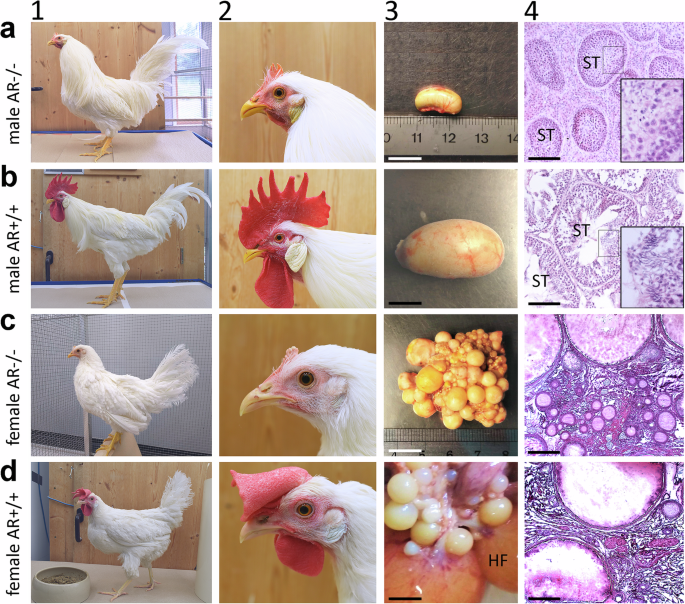2024-10-22 マックス・プランク研究所
<関連情報>
- https://www.mpg.de/23615914/1022-psy-testosterone-a-male-and-a-female-sex-hormone-155111-x?c=2249
- https://www.nature.com/articles/s41467-024-52989-w
鳥類の性発生におけるアンドロゲン受容体シグナリングの重要な役割を明らかにする Unveiling the critical role of androgen receptor signaling in avian sexual development
Kamila Lengyel,Mekhla Rudra,Tom V. L. Berghof,Albertine Leitão,Carolina Frankl-Vilches,Falk Dittrich,Denise Duda,Romina Klinger,Sabrina Schleibinger,Hicham Sid,Lisa Trost,Hanna Vikkula,Benjamin Schusser & Manfred Gahr
Nature Communications Published:17 October 2024
DOI:https://doi.org/10.1038/s41467-024-52989-w

Abstract
Gonadal hormone activities mediated by androgen and estrogen receptors, along with cell-autonomous mechanisms arising from the absence of sex-chromosome dosage compensation, are key factors in avian sexual development. In this study, we generate androgen receptor (AR) knockout chickens (AR-/-) to explore the role of androgen signaling in avian sexual development. Despite developing sex-typical gonads and gonadal hormone production, AR-/- males and females are infertile. While few somatic sex-specific traits persist (body size, spurs, and tail feathers), crucial sexual attributes such as comb, wattles and sexual behaviors remain underdeveloped in both sexes. Testosterone treatment of young AR-/- males fails to induce crow behavior, comb development, or regression of the bursa of Fabricius, which are testosterone-dependent phenotypes. These findings highlight the significance of androgen receptor mechanisms in fertility and sex-specific traits in chickens, challenging the concept of a default sex in birds and emphasizing the dominance of androgen signaling in avian sexual development.


